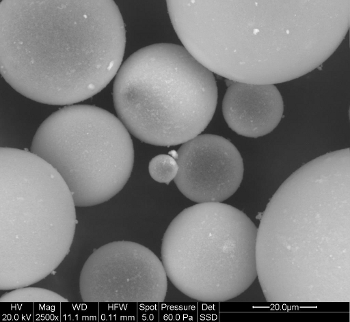Jul 13 2012
Researchers at Corporación Tecnológica Tecnalia have published a study in the prestigious science magazine, Applied Catalysis B: Environmental, which reveals the loss of nanomaterials caused by water on surface treatments employed in numerous consumption and construction products.
 Titanium Dioxide Nanoparticles
Titanium Dioxide Nanoparticles
The research entitled “Aging of photovoltaic surface treatments under a water current: long term behaviour and emission of titanium dioxide nanoparticles” centres on one of the applications of nanomaterials which has recently found the most success: photovoltaic surface treatments with titanium dioxide nanoparticles.
These nanoparticles, when illuminated with ultraviolet light, are capable of degrading organic material present, including contaminants which can be found in water and air.
Thanks to this property and the hydrophobicity which these surface treatments provide the surfaces, they are often applied to certain paints, decontaminant pavements or, still in the experimental stage, water and air treatment systems.
The results of the work carried out indicate that in all the surface treatments analysed there was a loss of nanomaterials and properties in the surface treatments. That is why Tecnalia has created a highly specialised technological service which is also adaptable to the needs of companies to optimize the development of surface treatments, knowing its behaviour under real operational conditions and/or estimate its useful life.
Source: nanoBasque.